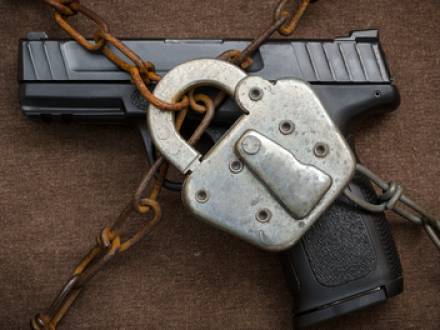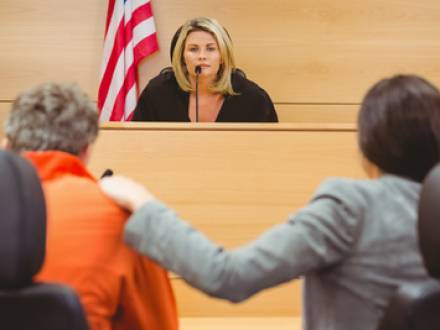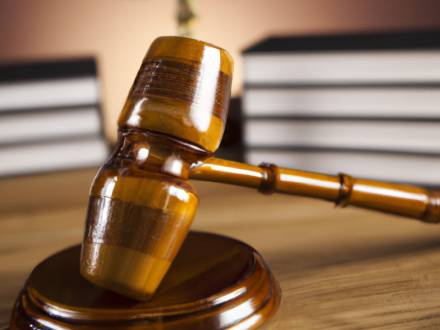Recent Blog Posts
Can I Have My Gun Rights Restored in Florida?
 Under the Second Amendment to the U.S. Constitution, Americans have the right to bear arms. However, that right can be lost under both federal and state laws — particularly for people convicted of certain crimes. If you have been convicted of a felony or a gun-related offense in Florida, you are likely prohibited from owning, possessing, or purchasing a firearm. The same is true if you were convicted of a misdemeanor involving domestic violence.
Under the Second Amendment to the U.S. Constitution, Americans have the right to bear arms. However, that right can be lost under both federal and state laws — particularly for people convicted of certain crimes. If you have been convicted of a felony or a gun-related offense in Florida, you are likely prohibited from owning, possessing, or purchasing a firearm. The same is true if you were convicted of a misdemeanor involving domestic violence.
Fortunately, this loss of rights is not always permanent. In some cases, a person may be able to regain their firearm rights through a specific clemency process administered by the State of Florida. While the path is strict and highly regulated, it is possible to succeed — especially with legal guidance from an experienced and tenacious Miami, FL gun rights restoration lawyer. If you are located in Miami-Dade County and want to understand your options, The Hoffman Firm can walk you through the steps and help you prepare a strong application.
Defending Possession of a Firearm by a Convicted Felon
 A felon in possession of a firearm charge can have severe, life-changing consequences. Understanding your rights is the first line of defense, and a Broward County, FL felon in possession of a firearm attorney will walk you through the legal process and the possible defenses as they apply to your case. You do not have to face these charges alone.
A felon in possession of a firearm charge can have severe, life-changing consequences. Understanding your rights is the first line of defense, and a Broward County, FL felon in possession of a firearm attorney will walk you through the legal process and the possible defenses as they apply to your case. You do not have to face these charges alone.
What Are Common Defenses for Possession of a Firearm by a Convicted Felon?
Pretrial defenses challenge how the evidence used to charge you was collected and whether or not it is sufficient for a conviction. Trial defenses can either challenge the sufficiency of the evidence or raise an affirmative defense. Examples of these defenses include:
-
Illegal search and seizure: You may be able to argue that the law enforcement officer who found the firearm did so through an unlawful search, violating your Fourth Amendment rights.
Understanding Testimony Requirements in Domestic Cases with Restraining Orders in Miami and Broward, Florida
 In Miami and Broward, Florida, individuals facing domestic cases involving restraining orders often have questions about their legal rights and obligations regarding testimony. As a reputable criminal defense attorney at Hoffman Law Firm, Evan Hoffman provides valuable insights into this complex legal issue.
In Miami and Broward, Florida, individuals facing domestic cases involving restraining orders often have questions about their legal rights and obligations regarding testimony. As a reputable criminal defense attorney at Hoffman Law Firm, Evan Hoffman provides valuable insights into this complex legal issue.
First and foremost, it's crucial to understand that court-issued restraining orders carry significant legal weight and must be adhered to. These orders are designed to protect individuals from potential harm or harassment and are enforceable by law.
When it comes to testimony in a domestic case with an open restraining order, several factors come into play. Courts may require testimony from various parties involved, including the individual protected by the restraining order and the respondent named in the order. However, legal protections exist to ensure fairness and safety throughout the legal process.
One important consideration is the concept of privilege, which applies to certain communications and interactions. For example, spousal privilege may prevent one spouse from being compelled to testify against the other in certain circumstances. However, the specifics of privilege can vary based on the nature of the case and the relationship between the parties involved.
Understanding Constructive Possession and Open Carry of Weapons in Miami and Ft. Lauderdale, Florida
In Miami and Ft. Lauderdale, Florida, understanding the laws regarding constructive possession and open carry of weapons is crucial. As a respected criminal defense attorney at Hoffman Law Firm, Evan Hoffman sheds light on this complex legal issue.
Constructive possession refers to the legal concept where an individual has control over an object, even if it is not physically in their possession. This concept often comes into play in cases involving firearms or other weapons. In Florida, the law prohibits certain individuals, such as convicted felons, from possessing firearms. However, constructive possession can extend beyond physical possession to include situations where an individual has control or access to a weapon.
Open carry refers to the practice of visibly carrying a firearm or weapon in public. Florida has specific laws governing open carry, including requirements for obtaining a concealed carry permit. It's essential for individuals to understand these laws to avoid potential legal consequences.
Concealed Carry Is Now Legal in Florida: What You Need to Know
The recent legalization of concealed carry in Florida marks a significant milestone for gun rights enthusiasts. However, it's important to note that not everyone is automatically eligible to exercise this newfound privilege. For individuals with felony convictions on their record, understanding the process of rights restoration is crucial. In this blog post, we will explore the implications of the new concealed carry law in Florida and the steps felons can take to regain their rights.
Concealed Carry in Florida: A Brief Overview
As of July 1st, 2023, eligible individuals in Florida can now legally carry concealed weapons in public places, provided they have obtained the necessary permit. However, it's important to recognize that this privilege does not extend to individuals with felony convictions.
Rights Restoration for Felons in Florida
If you have a felony conviction in Florida, your rights, including the right to possess a firearm, are restricted. However, there are avenues available for rights restoration:
Florida's New Gun Law: Permitless Concealed Carry Takes Effect
On July 1, 2023, Floridians experienced a significant change in their state's gun laws. Governor Ron DeSantis signed a bill into law in April, ushering in a new era of firearm regulations. Starting on this date, Floridians will be able to carry concealed guns without a permit, marking a substantial shift in the state's approach to gun ownership and concealed carry.
The New Law
The bill signed by Governor DeSantis eliminates the requirement for Floridians to obtain a concealed carry permit to carry a concealed firearm. This change means that individuals who meet certain eligibility criteria will be allowed to carry a concealed firearm without having to go through the previous process, which included mandatory training, licensing fees, and background checks.
Key Provisions of the Law:
- Permitless Concealed Carry: The most significant change is that individuals who are legally eligible to possess a firearm can now carry it concealed without obtaining a specific concealed carry permit.
Balancing Justice and Protection: A Closer Look at the Deposition Amendment in HB 667
Discovery is the cornerstone of our justice system, ensuring that the truth is unveiled when individuals face criminal accusations. However, striking the right balance between obtaining evidence and protecting vulnerable parties can be a complex challenge. Florida's recent addition to HB 667 aims to address this delicate balance by limiting the deposition of alleged victims in specific cases. While the intention is to safeguard child victims of sexual offenses and intellectually disabled victims, concerns have been raised about potential drawbacks to judicial efficiency and the rights of both victims and defendants. In this blog, we delve into the intricacies of this amendment, its potential implications, and the arguments surrounding its adoption.
Protecting Vulnerable Victims
The amendment to HB 667 seeks to prevent the deposition of alleged victims who fall into two categories: child victims of sexual offenses and victims with intellectual disabilities. This approach reflects a proactive step toward ensuring that these vulnerable individuals are spared the potential trauma of testifying multiple times. In cases involving such severe penalties as mandatory life imprisonment or lengthy sentences, proponents argue that "good cause" is inherently established, warranting the prohibition of depositions without additional hearings.
Exploring Rehabilitation Programs for Juvenile Offenders in Florida
As a parent or guardian of a juvenile offender in Florida, navigating the criminal justice system can be overwhelming. However, it is essential to explore rehabilitation programs that can provide tangible solutions to address the underlying issues contributing to their delinquent behavior. In this blog post, we will delve into the various rehabilitation programs available in Florida, their effectiveness, and how The Hoffman Firm can assist you in finding the best course of action for your loved one.
Community-Based Programs
Community-based programs aim to divert juvenile offenders from the traditional justice system and provide them with intensive supervision, counseling, and educational support. These programs, such as the Florida Department of Juvenile Justice (DJJ) Prevention Programs, focus on preventing further criminal behavior by addressing the root causes and promoting positive change.
Residential Treatment Centers
Residential treatment centers offer a structured environment where juvenile offenders receive intensive therapy, education, and vocational training. These centers, like the DJJ Residential Commitment Programs, provide a comprehensive approach to rehabilitation, ensuring that young individuals acquire the necessary skills to reintegrate into society successfully.
Steps to Take if Accused of a Probation Violation in Florida
Probation is a second chance for individuals convicted of a crime to reintegrate into society while abiding by specific conditions. However, even with the best intentions, probation violations can occur, leading to severe consequences. If you find yourself accused of a probation violation in Florida, it's crucial to understand the steps you should take to protect your rights and navigate this challenging situation. In this blog post, we will provide a comprehensive guide on the steps to take if you are facing a probation violation accusation in Florida.
Understand the Allegations Against You
Before taking any action, fully understanding the allegations against you is essential. Obtain a copy of the probation violation report and carefully review the details. Pay close attention to the conditions you are accused of violating and any evidence presented. This understanding will help you formulate a strong defense strategy.
Seek Legal Representation
When facing a probation violation accusation, it is crucial to consult with an experienced criminal defense attorney immediately. A skilled attorney will guide you through the legal process, protect your rights, and help you build a robust defense. They will analyze the evidence against you, identify procedural errors, and advocate for your best interests.
What can I do to get my gun rights restored after the gun law passed in Florida
Blog Title: How to Restore Your Gun Rights in Florida After the New Gun Law
If you've lost your gun rights due to a criminal conviction in Florida, the new gun law may have left you wondering what you can do to regain your right to bear arms. Fortunately, there are steps you can take to restore your gun rights. Here's what you need to know:
1. Understand the New Law
Before you can begin the process of restoring your gun rights, you need to understand the new law. The law, which went into effect on July 1, 2019, allows certain individuals who have been convicted of nonviolent felonies to petition the court for the restoration of their gun rights. However, the process is not automatic, and there are certain requirements that must be met.
2. Determine Your Eligibility
To be eligible for gun rights restoration, you must meet certain criteria. For example, you must have completed all the terms of your sentence, including probation or parole. You must also have no pending criminal charges and no other criminal convictions that would disqualify you from owning a firearm.
















